The Problem With Judging

The most money I ever made for judging a single day of Magic was $2,000.

I was one of the head judges at Grand Prix Las Vegas in 2015. Channel Fireball paid for my hotel room. I paid for my flight, my food, and some foils for my Commander decks. I'd been a judge for more than eleven years, and it remains the highest point of my judge career. I'll never forget it.
To judge a large event in 2022, I can expect $200 each day as compensation. If I want a hotel room, I'll need to pay for it myself. I can probably keep costs low by stacking three or four people in that room, more if they don't mind sleeping on the floor. I can drive to Atlanta from my home in Greensboro, and I drive a hybrid, so maybe I can get by budgeting $100 for gas. I can probably eat on $20 a day, but a plate of chicken tenders and fries at the convention center will probably be half of that.
People become judges for various reasons, and the value proposition of judging any event is personal. I'll never criticize anybody for choosing to judge.
The system that offers judges a profit of less than minimum wage for a hard day's work, however?
I may have some criticisms there.
The Before Times
My first big Magic event was Grand Prix Boston, in 2005. I'd been a judge for nearly a year. My parents didn't like that I was a judge. They saw me traveling to every event at which I could get on staff. I was regularly driving from New Hampshire to Connecticut to work an event in exchange for a box of product, then drive several hours back. I utterly loved it. I think my parents would have preferred I get a better job and move out of their house. (Fair.)
For three days of work at the Grand Prix, I was given a hotel room and my choice of two boxes or $150. I knew that going in and, while I wasn't wild about the comp, I was thrilled to judge a huge event. You can imagine my surprise when, at the end of the event, the organizer handed me a packet of foil promos. I quickly sold them all to a vendor for another $350, putting me up $500 on the weekend. My parents were more enthusiastic about my judging after that.
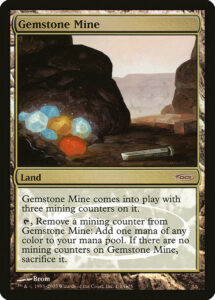
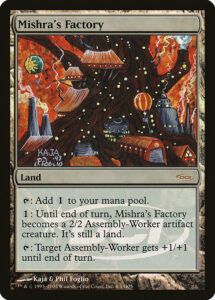
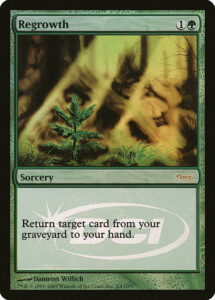
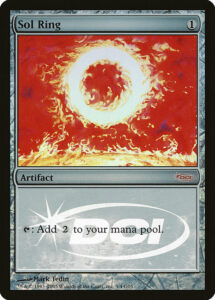 Judge Promos, 2005.
Judge Promos, 2005.
I guarantee that the organizer for that event did not pay for those foils. They were a gift from Wizards of the Coast, and if I was able to convert them into dollars, great! Judges received these gifts at the end of large events until late 2014, when WotC ended the practice. There were no replacement gifts offered in their stead, and certainly nothing a judge could sell on the secondary market for hundreds of dollars.
I was one of the first judges to find out about this decision. At the time, I was working with Card Titan, a tournament organizer based out of New Jersey. Their owner, Nick Coss, hired me to help run Grand Prix Baltimore, including the solicitation for judge staff. Where previous Grands Prix that year had explicitly offered judges these gifts from WotC, Card Titan was left with an expensive problem.
We threw money at the problem. At the time, standard compensation for a Grand Prix was one box of product per judge level per day, and one packet of foils per level at the end of the weekend. Instead, we settled on $100 per judge level per day. What had previously been a modestly expensive endeavor had become a very expensive endeavor. Card Titan did not raise entry fees for the event and chose to eat the expense.
For the next five years, that compensation model was adopted by many organizers throughout the United States. Some organizers will offer additional money to defray travel costs, or provide hotel rooms, but these are the exceptions, and usually reserved for senior judges.
The Lawsuits and The Academy
It was 2015 when the lawyers got involved. Paul Yale, a judge from California, sued WotC, alleging they violated the California Labor Code in not providing Mr. Yale with "minimum wages and overtime," in addition to breaks, payroll records, and reimbursement of business expenses1. A subsequent lawsuit was filed in 2016 by a group of judges2 seeking unpaid wages and overtime. In each case, the outcome was the same: WotC filed a motion to dismiss, the motion was granted, and the plaintiffs agreed to a settlement with WotC.
Any lawsuit is a risk. You may have the facts and the law behind you, and you still may not win. If you lose, especially in a lawsuit that may classify thousands of independent contractors as employees, the financial repercussions would likely be significant. The judge program encompasses most countries in the world, each with their own labor and tax laws among other constraints. What would it cost WotC to establish several thousand judges worldwide as employees?

On July 29, 2019, WotC announced the end of its relationship with the Magic judge program3. A new organization, Judge Academy, was created to handle all aspects of judging, including certification and training. WotC provides promo foils to Judge Academy, who distributes these foils to judges at conferences. To be eligible to receive these foils, judges pay annual membership dues of $75.
No lawsuits have been filed against Judge Academy asserting an employer-employee relationship and, to date, no further lawsuits along those lines have been filed against Wizards of the Coast.
Follow the Money
Meanwhile, Magic continued to be a massive success. Hasbro's 2019 earnings call included 30% year-over-year growth for Magic4 and projections to double Wizards of the Coast's revenue between 2018 and 2023. In October 2019, CFB Events announced a schedule5 of 42 MagicFest events worldwide in 2020. By all accounts, things were going very well.
COVID-19 had other plans. Of the 42 MagicFests scheduled in 2020, only seven actually took place. Star City Games' ubiquitous SCG Tour series had planned for thirteen events in the first half of the year, and ran only five before canceling all subsequent events for the year. In-person Magic events, other than those held by stores unwilling to implement the necessary health precautions, ceased to exist.
Considering all of the time, effort, and money that went into running Magic events, and their complete absence for most of 2020, one might assume Wizards' revenue that year would take a hit.
Nope.
The $816 million Wizards earned in revenue in 20206 was the company's best financial year to date. That success was surpassed by 2021, which saw Wizards' revenue exceed $1 billion7. Organized play, and the aspirational model of professional Magic, had been a pillar of Wizards' strategy for marketing Magic since its inception. In a two-year period where organized play was logistically implausible, Wizards found its greatest financial successes to date.
Think about what that means for in-person Magic. WotC stops supporting MagicFests, and instead of experiencing a significant decrease in revenue, they see their best financial year so far. What incentive does WotC have to continue with their involvement in large-scale Magic events? They're expensive, logistically demanding, and they take away from time that could otherwise go to products with less overhead.
The Current Times
In 2022, in-person Magic returns. Wizards announced a massive celebration of Magic's 30th anniversary, Magic 30, to be held this October. The Dreamhack Regional Championship, held in November, will provide players with the chance to win slots on the Pro Tour and at the World Championship.
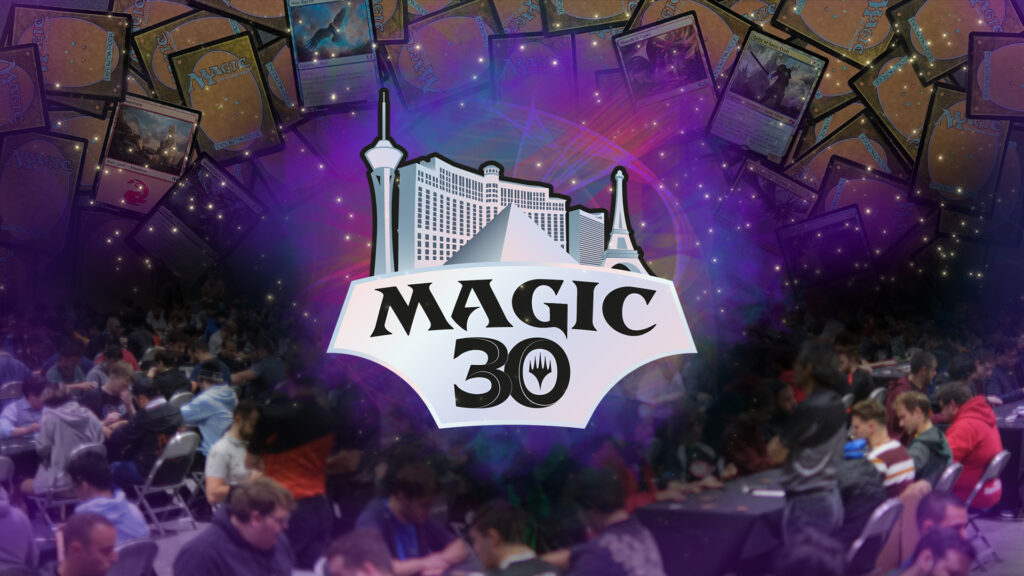
These events will use Wizards-branded materials, but they will not be run by Wizards of the Coast. Instead, Wizards has contracted these events to tournament organizers with significant experience running large gaming events. ReedPop, the organizer for Magic30, has contracted long-time professional tournament organizer Pastimes to run tournaments there while Dreamhack, whose experience exists primarily in online gaming conventions, takes responsibility for the Regional Championship.
This is not a new business model for Wizards. The Grand Prix circuit, a central pillar of Wizards' organized play strategy for almost twenty years, was usually run by large organizers like Channel Fireball, Star City Games, and TournamentCenter. These events draw thousands of players competing for valuable prizes. Like all tournaments before them, they require large numbers of trained, experienced staff to ensure events run fairly, efficiently, and with as much fun as possible.
Unlike WotC, most tournament organizers are not the subsidiaries of global corporations with billions of dollars in annual revenue. They make money off running large events, where they sell space to vendors and entry fees to players. They incur massive expenses in renting space, hiring staff, and purchasing the materials necessary to run the event.
Sometimes, the tournament organizer is also a vendor, and in those cases, they use the event to subsidize the expenses of traveling to distant locations and buying as many Magic cards as humanly possible. Regardless, the expenses are high, and the profits may not be realized for months.
For these organizers, judges are an expense that must be paid up-front and in cash. The benefit provided by judges at large events is difficult to quantify. For example: if you're a TO, and you can get a passable Level 1 judge for $200, or a high-functioning Level 2 judge for $300, is the difference between the two worth $100? It's hard to say. Is your event going to be quantifiably better if you hire more experienced judges? Also hard to say. Will your event be less profitable if you hire more experienced judges? Almost certainly.
Judges possess front-line customer service, technical expertise, conflict resolution, physical endurance, emotional resilience, and investigative skills. If being a judge means flying to an event, renting a hotel room, and feeding oneself for several days - and if the presence of those judges is a necessary condition of an event running at all, let alone profitably - then those are expenses for the business running the event, and not the independent contractors working it.
I am in favor of organizers profiting from their labor. Running a large Magic event requires a ton of work, and the companies willing to do that work deserve compensation. I oppose organizers making greater profits when judges provide labor without also profiting. It's a common occurrence, and it needs to stop.
So What?
I can't predict the future, but I can confidently assert both Magic 30 and the Regional Championship will be adequately staffed with quality judges and they will decline some number of judges. The demand for judges will be outstripped by the supply of judges. If that's the case, there's no need to pay more for judges. Organizers can meet their needs by offering $200 for a day of work.
A common reaction to this argument is that judges ought to unionize. As a collective bargaining unit, surely judges could advocate for better compensation and other benefits. It's a fantastic idea, and it utterly fails the moment it makes contact with reality. Judges have a difficult time achieving consensus on Slow Play, so the prospect of achieving consensus on union bylaws seems implausible.
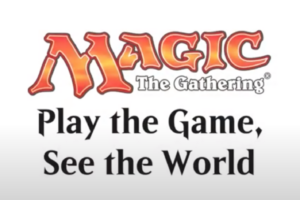
For some judges, comp is not the point. "Play the Game, See the World" used to be one of Wizards' marketing phrases for players, and it similarly applied to judges. I've been to Canada, Germany, and Spain as part of the judge program, and in each case it was extremely rewarding. The community has always been the best part of judging, and for some people, that's enough.
Many smart, hard-working people have worked, and continue to work, on making things as good for judges as they can be, both in Judge Academy and at Wizards. If there was a clean, elegant solution to the problem, it would have been found. Instead, we are where we are.
So, what? The economics of judging are suboptimal. No quick fix is coming. Maybe players see that, and do something about it. Maybe organizers pay judges more. Maybe the money never changes, but the appreciation does. Maybe judges are treated better.
Or maybe not. Maybe nobody cares. Maybe "fuck you, got mine!" is the status quo. If that's you, I don't know what to tell you. Magic is a great game. It's served by the finest community I've ever known. That community deserves better than your apathy. Think about it.
- Yale v. WIZARDS OF THE COAST LLC, Dist. Court, ND California 2017
- Shaw v. WIZARDS OF THE COAST, LLC, Dist. Court, ND California 2018
- S. Mox, The Next Era of Magic Judging, Magic Judge News, July 29, 2019
- Milton Griepp, 'Magic: The Gathering' Up 30% (Including Digital) in 2019, ICV2, Feb 12, 2020
- CFB Events, 'Our schedule for 2020 MagicFests is up!', Oct 17, 2019
- Milton Griepp, 'WotC Makes More Money Than Hasbro's Toy Business', ICV2, Feb 26, 2021
- Milton Griepp, 'WotC Sold Over $950 Million In Tabletop Games In 2021', ICV2, Feb 8, 2022